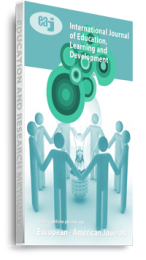This study predicts students’ pass or failure in the WASSCE mathematics mock examination. Three hundred (300) Senior High School (SHS) students, comprising one hundred and fifty-nine (159) males and one hundred and forty-one (141) females from selected Senior High Schools in the Cape Coast Municipal District of the Central Region, participated in the study. The binary logistic regression model comprising continuous and categorical predictor variables was adopted. The results indicated that the raw score coefficients for Math self-concept, Math attitude, Instructional strategies and methods, Teacher competency in math, and Gender, were positive and significant (P < .05), while that of High Socio-Economic Status (SES) was negative and significant (P < .05). The adjusted odds ratio for gender was 2.24, with a C. I of .45 -11.02. The adjusted odds ratio for mathematics self-concept was 7.40, with a C. I of 2.32 – 23.60, while, the adjusted odds ratio for Instructional strategies and methods was 31.67, with a C.I of .97 -15.40. An implication of this study is that mathematics teachers should not downplay the role these significant predictors play in the teaching and learning of the subject. Mathematics teachers must create a conducive atmosphere in the classroom to support active learning among students. The study concludes that to increase the probability of students passing the examination, the value of the exponential term in the computation of the probability must reduce considerably. This can be realised through an effective combination of the predictor variables.
Citation: Charles Kojo Assuah, Rufai Sabtiwu, Robert Benjamin Armah, Grace Abedu, & Fusheini Awulo(2022) Pass or Failure of Students in The “WASSCE” Mathematics Mock Examination: The Binary Logistic Regression Model, International Journal of Education, Learning and Development, Vol. 10, No.4, pp.38-56
Keywords: Binary Logistic Regression Model, Cape Coast municipal district, Math self-concept, Mock Examination, WASSCE

